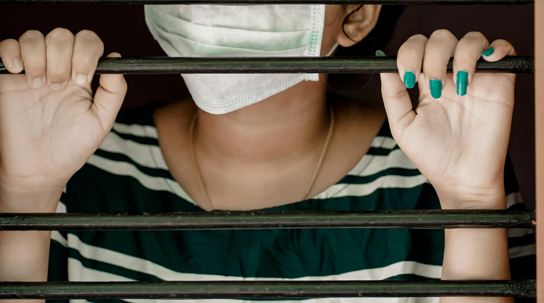In a distressing case that has garnered international attention, three children—eight-year-old twins and their ten-year-old sibling—were rescued from a home in Oviedo, Spain, where they had been confined by their parents since 2021. The parents, a 53-year-old man and a 48-year-old woman, reportedly suffered from ‘COVID syndrome,’ a condition characterized by extreme anxiety about the virus, leading them to impose severe isolation measures on their family. The children were found in unsanitary conditions, wearing multiple face masks, and had been deprived of normal social interactions and education for years. Authorities have since taken the children into protective custody, and the parents face charges including domestic violence, psychological abuse, and child abandonment.
Understanding ‘COVID Syndrome’
‘COVID syndrome,’ also known as COVID Anxiety Syndrome (CAS), is a term used to describe a set of behaviors stemming from an overwhelming fear of contracting COVID-19. Symptoms include compulsive checking for symptoms, avoidance of public places, obsessive cleaning, and social withdrawal. In this case, the parents’ extreme measures, driven by their anxiety, resulted in the prolonged confinement and psychological harm of their children.

The Rescue Operation
The situation came to light when neighbors reported concerns about the children’s absence from school and unusual activity at the residence. Upon investigation, police discovered the children living in deplorable conditions, with limited access to hygiene facilities and no exposure to the outside world. The children exhibited signs of severe social and environmental deprivation, reacting with awe to simple experiences like touching grass for the first time.
Legal and Social Implications
The parents have been arrested and are currently in pretrial detention without bail. They face multiple charges, including domestic violence, habitual psychological abuse, and child abandonment, which could result in significant prison sentences. This case highlights the potential dangers of unchecked mental health issues exacerbated by the pandemic and underscores the importance of community vigilance and support systems.
Broader Impact on Children During the Pandemic
While this case is extreme, it reflects broader concerns about the impact of the COVID-19 pandemic on children’s mental health. Studies have shown that prolonged lockdowns and social isolation have led to increased levels of anxiety, depression, and behavioral issues among children. In Spain, strict confinement measures, especially in urban areas with limited outdoor space, have been associated with significant emotional distress in children.

Conclusion
The rescue of these three children serves as a stark reminder of the unintended consequences that pandemic-related fears can have on vulnerable populations. It emphasizes the need for accessible mental health resources and the importance of community awareness in identifying and addressing such issues. As societies continue to navigate the aftermath of the pandemic, ensuring the well-being of children must remain a priority. The children are now receiving psychological care and support as they begin the long process of recovery and reintegration into normal life. Authorities are also evaluating their educational and medical needs, having missed crucial developmental milestones. This tragic case has prompted renewed calls in Spain for stronger child welfare monitoring systems and mental health support.

















